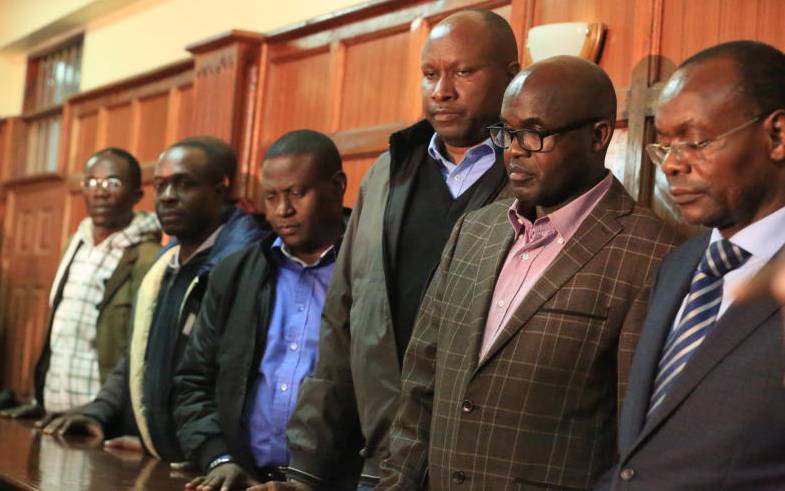×
The Standard e-Paper
Fearless, Trusted News

Eric Kariuki , Pole Mwangeni , Matin Muswanya , Peter Kinyanjui , Eric Chesire and Charles Ongwae when they were charged with conspiracy to defraund and attempted murder . Picture taken on 25/6/2018. [Photo: George Njunge/Standard]
Lawyers in a case where seven people are charged with releasing fertiliser suspected to contain mercury now claim that the office of the Director of Public Prosecution is protecting cartels.